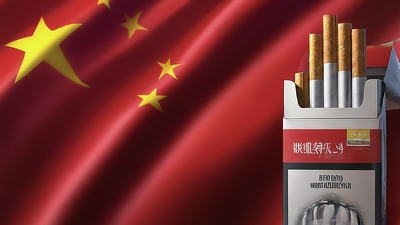China has instructed government officials nationwide to reduce unnecessary expenditure on travel, meals and office facilities, signalling President Xi Jinping‘s commitment to fiscal prudence amidst challenging economic conditions affecting government finances.The regulations reinforce Xi’s initiative for officials to reduce expenditure, particularly as declining land sale revenues constrain budgets whilst local administrations face substantial debt obligations. In late 2023, central authorities instructed government officials to embrace austerity measures, strengthening Xi’s drive against corruption and ostentatious displays of affluence.Also Read | ‘Big ban’ actions: How India is shunning Pakistan and its allies like Turkey & Azerbaijan – top 5 measuresAccording to the official Xinhua News Agency on Sunday, the directive from the government and Communist Party leadership specifically addressed spending on cigarettes, alcohol and receptions.The announcement emphasises the importance of practising careful spending and frugality whilst condemning excessive expenditure. Xinhua quoted the directive stating that “waste is shameful and the economy is glorious.”On Monday, consumer staples stocks experienced a significant decline within the CSI 300 Index’s sub-categories, dropping by 1.7%. Notably, Kweichow Moutai Co. saw its largest decline in six weeks, falling by 2.4%, according to a Bloomberg report.Beijing launched its most comprehensive programme in recent years to tackle local-authority debt concerns in the previous year. This initiative sought to minimise default risks and enable local governments to maintain economic development support.Meanwhile, China recorded a 5.4% economic growth in the first quarter, surpassing projected figures. Officials maintain their optimism about reaching Beijing’s growth objective of approximately 5% for the year, although economists caution that UStariffs could impact this progress.Also Read | Why India can be a big winner of Donald Trump 2.0 era if it plays its cards rightConcerned about the negative effects of tariffs on economic performance, the government introduced stimulus initiatives earlier this month, encompassing reductions in interest rates and substantial liquidity support.The monetary policy measures were implemented prior to the China-U.S. trade agreement, which was finalised following crucial negotiations in Geneva, representing a notable reduction in the prolonged period of increasing friction.
Trending
- ‘Bullish on Indian market’: European plane maker ATR eyes expansion in India; in talks with airlines
- ITC bets on buyouts to grow food business
- Maharashtra, Karnataka account for 51 pc of FDI in India in FY25: Govt
- Over a dozen companies line up IPOs in 3-6 months
- Auto companies seek govt help for magnet imports
- China tightens supply: India’s auto industry seeks govt help on rare earth magnet imports; key EV parts impacted
- Mohandas Pai flags lack of domestic capital for Indian startups; urges policy overhaul; calls for stronger R&D support
- Trump-Musk rift rattles Wall Street; Tesla share slide exposes market fragility; major indexes take a hit
- Real estate market: Major listed firms sell over Rs 1 lakh crore properties; Godrej leads
- Delhi infrastructure project: Centre approves Rs 24,000-crore plan to decongest Delhi; Tunnel to link Mahipalpur to Vasant Kunj

